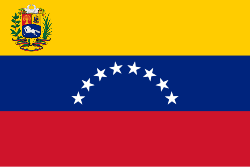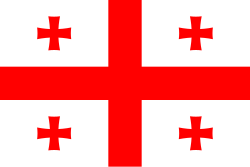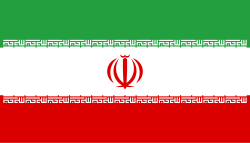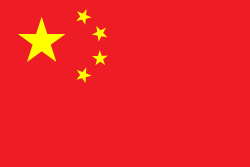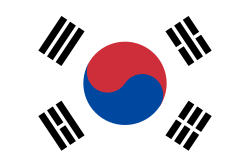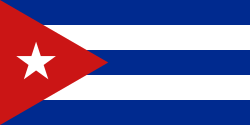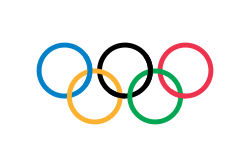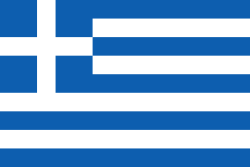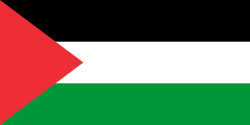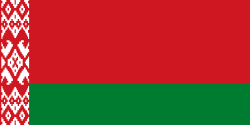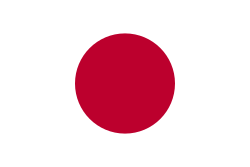Herrarnas 96 kg i tyngdlyftning vid olympiska sommarspelen 2020
| Tyngdlyftning Herrarnas 96 kg | |||
| Information | |||
|---|---|---|---|
| Datum | 31 juli 2021 | ||
| Nationer | 15 | ||
| Deltagare | 15 | ||
| Anläggning | Tokyo International Forum | ||
| |||
| |||
| |||
| Tyngdlyftning vid olympiska sommarspelen 2020 | ||
|---|---|---|
 | ||
| Herrar | Damer | |
| 61 kg | 49 kg | |
| 67 kg | 55 kg | |
| 73 kg | 59 kg | |
| 81 kg | 64 kg | |
| 96 kg | 76 kg | |
| 109 kg | 87 kg | |
| +109 kg | +87 kg | |
Herrarnas tyngdlyftning i 96-kilosklassen vid olympiska sommarspelen 2020 hölls den 31 juli 2021 i Tokyo International Forum i Tokyo.[1][2]
Fares El-Bakh från Qatar tog guld, venezuelanska Keydomar Vallenilla tog silver och Anton Pliesnoi från Georgien tog brons.
Tävlingsformat
Varje tyngdlyftare får tre försök i ryck och stöt. Deras bästa resultat i de båda lyften kombineras till ett totalt resultat. Om någon tävlande misslyckas att få ett godkänt lyft, så blir de utslagna. Ifall två tyngdlyftare hamnar på samma resultat, är idrottaren med lägre kroppsvikt vinnare.[3]
Rekord
Innan tävlingens start gällde följande rekord.
| Världsrekord | Ryck | 186 kg | Asjchabad, Turkmenistan | 7 november 2018 | |
| Stöt | 231 kg | Tokyo, Japan | 7 juli 2019 | ||
| Totalt | 416 kg | Asjchabad, Turkmenistan | 19 april 2021 |
Resultat
| Placering | Idrottare | Nation | Grupp | Kroppsvikt[4] | Ryck (kg) | Stöt (kg) | Totalt[5] | ||||||
|---|---|---|---|---|---|---|---|---|---|---|---|---|---|
| 1 | 2 | 3 | Resultat | 1 | 2 | 3 | Resultat | ||||||
| Fares El-Bakh | A | 95,70 | 173 | 177 | 177 | 217 | 225 | 225 OR | 402 OR | ||||
| Keydomar Vallenilla | A | 95,00 | 172 | 175 | 177 | 177 | 210 | 210 | 387 | ||||
| Anton Pliesnoi | A | 96,00 | 173 | 177 | 177 | 206 | 210 | 210 | 387 | ||||
| 4 | Boady Santavy | A | 95,40 | 173 | 178 | 178 | 200 | 208 | 208 | 386 | |||
| 5 | Chen Po-jen | A | 95,85 | 171 | 176 | 176 | 200 | 205 | 205 | 381 | |||
| 6 | Bekdoolot Rasulbekov | A | 95,70 | 162 | 166 | 166 | 200 | 208 | 208 | 374 | |||
| 7 | Bartłomiej Adamus | A | 95,95 | 160 | 163 | 163 | 197 | 197 | 360 | ||||
| 8 | Yu Dong-ju | A | 92,55 | 160 | 160 | 200 | 200 | 360 | |||||
| 9 | Olfides Sáez | B | 92,35 | 156 | 156 | 193 | 198 | 203 | 203 | 359 | |||
| 10 | Cyrille Tchatchet II | B | 95,45 | 155 | 155 | 190 | 195 | 195 | 350 | ||||
| 11 | Theodoros Iakovidis | B | 91,90 | 147 | 152 | 156 | 156 | 175 | 182 | 182 | 338 | ||
| 12 | Christian Amoah | B | 140 | 145 | 145 | 165 | 170 | 170 | 315 | ||||
| 13 | Mohammed Hamada | B | 137 | 137 | 173 | 173 | 310 | ||||||
| — | Yauheni Tsikhantsou | A | 95,35 | 173 | 173 | — | — | ||||||
| — | Toshiki Yamamoto | A | 96,00 | 161 | 166 | 168 | 168 | — | — | ||||
Referenser
- ^ ”Weightlifting Competition Schedule”. Tokyo 2020. Arkiverad från originalet den 12 mars 2020. https://web.archive.org/web/20200312123054/https://tokyo2020.org/en/schedule/weightlifting-schedule. Läst 17 april 2022.
- ^ ”Schedule - Weightlifting Tokyo 2020 Olympics”. Olympian Database. http://www.olympiandatabase.com/index.php?id=245406&L=1. Läst 17 april 2022.
- ^ IWF Technical Rules. Arkiverad 29 december 2009 hämtat från the Wayback Machine. International Weightlifting Federation. Läst 7 augusti 2016.
- ^ ”Weightlifting | Men's 96kg | Group A Competition Sheet”. TOCOG. 31 juli 2021. Arkiverad från originalet den 1 augusti 2021. https://web.archive.org/web/20210801005007/https://olympics.com/tokyo-2020/olympic-games/resOG2020-/pdf/OG2020-/WLF/OG2020-_WLF_C56B_WLFM96KG--------------FNL-A00100--.pdf. Läst 17 april 2022.
- ^ ”Weightlifting | Men's 96kg | Results”. TOCOG. 31 juli 2021. Arkiverad från originalet den 31 juli 2021. https://web.archive.org/web/20210731125757/https://olympics.com/tokyo-2020/olympic-games/resOG2020-/pdf/OG2020-/WLF/OG2020-_WLF_C73_WLFM96KG--------------FNL---------.pdf. Läst 17 april 2022.
| |||||
Media som används på denna webbplats
Pictograms of Olympic sports - Weightlifting. This is unofficial sample picture. Images of official Olympic pictograms for 1948 Summer Olympics and all Summer Olympics since 1964 can be found in corresponding Official Reports.
An icon that represents a gold medal
An icon that represents a silver medal
An icon that represents a bronze medal
Black&white version of Image:Olympic Rings.svg to use in lists where the colored version is too eye-catching
Flag of Iran. The tricolor flag was introduced in 1906, but after the Islamic Revolution of 1979 the Arabic words 'Allahu akbar' ('God is great'), written in the Kufic script of the Qur'an and repeated 22 times, were added to the red and green strips where they border the white central strip and in the middle is the emblem of Iran (which is a stylized Persian alphabet of the Arabic word Allah ("God")).
The official ISIRI standard (translation at FotW) gives two slightly different methods of construction for the flag: a compass-and-straightedge construction used for File:Flag of Iran (official).svg, and a "simplified" construction sheet with rational numbers used for this file.
Kanadas flagga, införd 1965; denna version med Pantone‐nyanser. Nuvarande utformning ersatte den tidigare kanadensiska Red Ensign.
Chinese Taipei Olympic Flag. According to the official website of Chinese Taipei Olympic Committee, Blue Sky(circle) & White Sun(triangles) above the Olympic rings is neither the National Emblem of the Republic of China, nor the Party Emblem of Kuomintang (KMT), but a design in between, where the triangles do not extend to the edge of the blue circle, as registered at International Olympic Committee in 1981 and digitally rendered in 2013. Besides, the blue outline of the five-petaled plum blossom is broader than the red one. Moreover, the CMYK code of the blue one and the Blue Sky & White Sun is "C100-M100-Y0-K0", and different from the Olympic rings (C100-M25-Y0-K0). Note that it's the only version recognized by IOC.
Olympic Movement flag
Proportions 2:3, created 1913, adopted 1914, first used 1920.
- Colors as per http://fairspielen.de/wp-content/uploads/2015/09/Annexe-3-Olympism_and_the_Olympic_Symbol_-_Principles_and_Usages_Guide-1.pdf
- blue: PMS 3005C
- yellow: PMS 137C
- black: PMS 426C
- green: PMS 355C
- red: PMS 192C
- Dimensions of the rings taken from http://fairspielen.de/wp-content/uploads/2015/09/Annexe-3-Olympism_and_the_Olympic_Symbol_-_Principles_and_Usages_Guide-1.pdf


